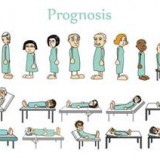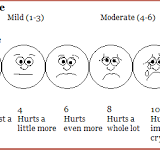“Low Velocity Impact” evidence found unhelpful.
On August 12, 2015, the BC Supreme Court considered ICBC’s favourite defence, the “low velocity impact”. In Pitcher v. Brown, 2015 BCSC 1415, the plaintiff was involved in a 2004 collision and sued for damages. The impact was a modest one. The Court rejected much of the plaintiff’s claim following credibility/reliability concerns in her testimony. The Court was equally dismissive of the defence strategy of calling engineering evidence to discuss the modest forces of the collision. The Court concluded, as have many previous judgments, that demonstrating forces are modest...
read moreWorsening prognosis not enough to allow late DME.
On August 7, 2015, a master of the BC Supreme Court ruled that a plaintiff’s failure to recover from injuries is not enough for a defendant to secure a late defence medical exam. In Dzumhur v. Davoody, 2015 BCSC 1656, the plaintiff was injured in a a collision and sued for damages. In the course of the lawsuit the plaintiff served an expert report opining that the plaintiff ought to recover provided the injuries are responsive to recommended treatments. The defendant did not obtain a defence medical report and as the deadline approached for exchanging expert evidence the plaintiff served an...
read moreSimple assertion of contemplated litigation doesn’t cut it.
On August 6, 2015, the BC Supreme Court effectively dismantled an ICBC claim for litigation privilege in Buettner v. Gatto. The plaintiff in that case was injured in a collision and advanced a claim for damages. The plaintiff retained counsel. Liability was initially admitted and then denied by ICBC. The plaintiff brought an application for production of various relevant documents and ICBC refused disclosure on the grounds that litigation was reasonably contemplated once the plaintiff retained counsel. The Court rejected this finding this position was based on little more than a bare...
read moreJudge: ICBC’s expert “careless” if not “deceptive”.
In Hendry v. Ellis, 2015 BCSC 1186, the plaintiff was injured in a collision and sued for damages. The defendant’s insurer retained a doctor who minimized the connection between the plaintiff’s complaints and the collision. At trial, through cross examination, the doctor made various admissions beyond the borders of the opinion contained in the report. In criticizing the physician’s opinion as “careless” if not outright “deceptive” Mr. Justice Jenkins provided the following reasons: [26] Expert evidence tendered at trial was that the duration of soft tissue pain is considered to be 12...
read moreThe “Standard of Proof” does not change for subjective injuries.
On April 16, 2015, the BC Supreme Court confirmed that the standard of proof does not change for a tort claim based on subjective soft tissue injuries. In Rabiee v. Rendleman, 2015 BCSC 595, the plaintiff was involved in a 2008 rear end collision. The defendant admitted fault but disputed injury pointing in part to the fact that the collision was minor. In accepting the plaintiff sustained soft tissue injuries and assessing non-pecuniary damages at $40,000 Madam Justice Sharma provided the following comments about the standard of proof in low velocity impact prosecutions: [62] Given the...
read moreYoung child need not be examined for discovery.
On March 12, 2015, a judge of the BC Supreme Court dismissed a defense application to conduct an examination for discovery of an 8 year old plaintiff in a motor vehicle accident lawsuit. In Dann-Mills v. Tessier, 2015 BCSC 386, the plaintiff was injured involved in a serious motor vehicle accident when he was 17 months old, allegedly suffering a serious traumatic brain injury. A lawsuit was brought on his behalf by a litigation guardian. The defendants sought a court order compelling the child to undergo an examination for discovery. The Court found that this would be inappropriate and...
read more









